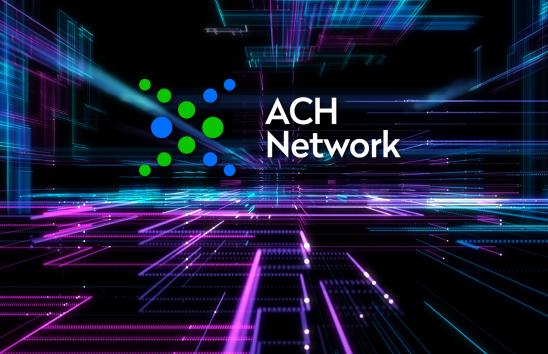Payments Legal & Compliance Summit Sessions
2026
Wednesday, December 2
9:00 – 9:10 AM | Opening Remarks
9:10 – 10:10 AM | From Regulation to Resilience—Operationalizing Compliance at Scale
The session examines how leading institutions translate regulatory frameworks into durable operating models. It covers the shift from control checklists to outcome-based assurance, integrating first and second lines of defense, governing models and data, and designing metrics that demonstrate resilience to boards, auditors, and supervisors.
10:15 – 11:15 AM | AI in Credit, Fraud, and Monitoring—Explainability, Bias, and Model Risk
This session dives into advanced AI deployments in underwriting, fraud analytics, and surveillance. It explains how to build evidence of explainability, fairness, and stability, manage training data provenance, document feature selection, and implement challenger models and post-deployment drift monitoring. Legal considerations include disclosure obligations, adverse action reasoning, and vendor accountability in shared model pipelines.
11:20 AM–12:20 PM | Real Time Payments—Instant Settlement, Instant Liability
With instant payment rails, institutions face compressed fraud windows, irrevocable transfers, and evolving consumer remediation expectations. The session lays out a control architecture for pre-transaction screening, strong customer authentication, mule account interdiction, and post-event restitution pathways. Legal implications span allocation of liability, error resolution standards, and cross border complexities when instant payments intersect with correspondent networks.
12:20 PM – 1:00 PM | Break
1:00 – 2:00 PM | Third Party and Cloud Risk—Contracting for Compliance Outcomes
Modern banking relies on cloud, data, and fintech partners. This session outlines a life cycle framework for due diligence, onboarding, monitoring, and exit strategies that tie contractual obligations to measurable compliance outcomes. Discussion covers shared responsibility models, right-to-audit clauses, data residency and transfer constraints, concentration risk, and how to escalate and remediate findings without disrupting critical services.
2:05 – 3:05 PM | Sanctions, Geopolitics, and Rapid Policy Change
Sanctions regimes shift quickly with geopolitical events, creating screening, alerting, and control calibration challenges. The session addresses governance for list management, beneficial ownership discovery, evasion typologies, payment message enrichment, and investigative documentation that stands up to regulator and court scrutiny. It also considers how to re risk counterparties and unwind exposures under time pressure.
3:10 – 4:10 PM | Consumer Protection and Fairness in Digital Products
As products become more dynamic, disclosures, fees, and pricing need fresh attention. This session explores building a fair-treatment program across marketing, onboarding, servicing, and collections. It shows how to test for disparate impact, maintain clear and layered disclosures in digital journeys, operationalize complaint analytics, and harmonize legal positions with compliance controls to minimize enforcement exposure.
Thursday, December 3
9:55 AM – 10:00 AM | Welcome Back and Day One Recap
10:00 AM – 11:00 AM | AML Modernization—From Rules to Intelligence
This session examines the progression from rules heavy alerting to intelligence-driven AML programs. It covers graph analytics, behavioral typologies, perpetual KYC, beneficial ownership resolution, and case investigation tooling. Legal and compliance perspectives address defensibility of model-based approaches, examiner expectations for documentation, and the operational math behind tuning to reduce false positives without missing risk.
11:05 AM – 12:05 PM | Data Governance for Legal Defensibility
Data is the substrate of every control and every claim in litigation or enforcement. This session presents a pragmatic blueprint for lineage, quality, access controls, retention, and evidence management that supports both regulatory examinations and courtroom standards. It explains how to align data catalogs, model registries, and contract exhibits so that facts are discoverable, consistent, and auditable.
12:05 PM – 12:30 PM | Break
12:30 PM – 1:30 PM | Payments Law Deep Dive
This masterclass provides a focused legal analysis of instant payment schemes, liability frameworks, error resolution, cross-border implications, and contract strategies with processors and networks. Participants leave with a structured checklist for product counsel engagement and launch governance.
1:35 PM – 2:35 PM | Contract Clauses that Operationalize Compliance
This interactive workshop translates policy objectives into enforceable contract terms with vendors and fintech partners. Participants draft clauses for control audits, evidence production, incident reporting timelines, data residency, subcontractor oversight, and termination rights, and learn how to pair these clauses with measurable KPIs for ongoing performance monitoring.
2:40 PM – 3:40 PM | Board Reporting and Regulatory Engagement that Lands
Effective reporting distills complex risk and compliance narratives into actionable insight. This session demonstrates templates for board dashboards, regulator meeting briefs, and remediation status tracking that clarify accountability and timelines. It covers how to present model risk, sanctions exposure, and payments fraud trends in ways that prompt decisions and support supervisory confidence.
3:45 PM – 4:15 PM | Harmonizing Global Standards—Capital, AML, and Data Privacy Across Borders
A cross-disciplinary panel discusses practical approaches to reconcile overlapping obligations for prudential capital, AML/KYC, and data privacy in multicountry operations. Panelists share playbooks for jurisdiction mapping, control rationalization, and the governance mechanisms that prevent fragmentation while respecting local nuances.
4:15 PM – 4:30 PM | Closing Comments



